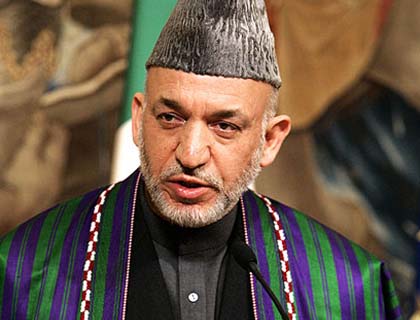KABUL - Former president Hamid Karzai has said that the world must build a “global consensus” on an inclusive security paradigm to address international security challenges, confront acts of terrorism and “eradicate its roots in sanctuaries.”
“The challenge for all of us today is to move beyond zero sum games,” Karzai added during his speech the war on terror, terrorism and the impact on Muslim countries at the Emirates Centre for Strategic Studies and Research on Monday.
“The world must recognise that extremists and terrorists have carried out immense atrocities against Muslims around the world,” he said. “They are instruments of distorting a peaceful religion and tainting the image of Islam and Muslims around the world.”
Karzai also warned that terrorism is moving beyond the Muslim world and that larger international sincerity is required against the phenomenon.
“What we need is a multi-lateral world order where big powers together with significant countries in the Muslim world can together play a role, as we see terrorism is starting to move beyond the Muslim world. I hope there will be a larger international sincerity about this.”
As per a report published on Monday by UAE’s The National, Karzai said with a changing geopolitical landscape in today’s world, countries were continuing to apply the same set of old rules.
“In order to confront the menace of terrorism, we must first address the fault lines that can be used to address divisions and violence in the Muslim world,” Karzai said.
According to Karzai, terrorism today was state-sponsored and the outcome of poor policies, devoid of ethics. “The terrorism we know today has nothing to do with religion,” he said. “It is not a state of mind nor is it a societal reaction to a so-called clash of civilisations. It is a phenomenon that is more political than social or ideological, and the recent history of Afghanistan in that of the region is a testimony of these observations.” (KP)

